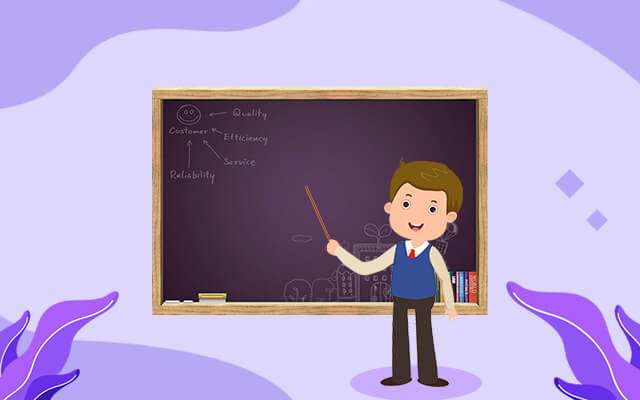剑雅19阅读题回忆版Test 3 Passage 3
剑桥雅思19收集了雅思考试真题共4套题目。羊驼雅思整理了剑雅19考试题Test 3的阅读题Passage 3回忆版,供考生们备考时复习参考。

相关阅读:
READING PASSAGE 3
You should spend about 20 minutes on Questions 27-40. which are based on Reading Passage 3 below.
Is the era of artifcial speech translation upon us?
Once the stuffofscience fclion, technology that enables people to lalk using different languages is now here, But how effective is it?
Noise, Alex Waibel tells me, is one of the major challenges that artifcial speech translation has to meet, A device may be able to recognise specch in a laboratory, or a meeting room, but will struggle to cope with the kind of background noise I can hear in my ofce surrounding Professor Waibel as he speaks to me from Kyoto station in Japan, l'm struggling to follow him in English, on a scratchy line that reminds me we are ncarly 10.000 kilometres apart - and that distance is still an obstacle to communicalion even if you're speaking the same language, as we are. We haven't reached the fiture yet, lf we had, Waibel would have been able to speak more comforably in his native German and I would have been able to hear his words in English.
At Karlsruhe lnstitute ofTechnology, where he is a professor of computer science, Waibel and his colleagues already give lectures in German that their students can follow in English via an electronic translator, The system generates text that students can read on their laptops or phones, so the process is somewhat similar to subtitling. lt helps that lecturer's speak clearly, don't have to compete with background chatter, and say much the same thing each year.
The idea of artifcial speech translation has been around for a long time. Douglas Adams' science fction novel, The Hitchhiker s Guide lo the Galawy, published in 1979. featured a life form called the 'Babel fish’which, when placed in the ear, enabled a listener lo understand any language in the universe. lt came to represent one of' those devices that technology enthusiasls dream of long
before they become practically realisable, like TVs flat enough to hang on walls: objects that we once could only dream of having but that are now commonplace. Now devices that look like prototype Babel fish have slarled to appear, riding a wave of advances in arlificial translation and voice recognition.
At this slage, however, they seem to be regarded as eye-catching novelties ralher than steps towards what Waibel calls 'making a language-transparent society', They tend to be domestic devices or applications suitable lor hotel check-ins, for example, providing a practical alternalive to speaking traveller's English, The elficiency ofthe translator is less important than the social liinclion, however, 'Prolessionals are less inclined to be paticnt in a conyersalion,' founder and CEO at Waverly Labs, Andrew Ochoa, observes. To redress lhis, Waverly is now preparing a new model for professional applications, which entails performance improvements in speech recognition, translalion accuracy and the time it takes to deliver the translated speech.
For a conversation, both speakers need to have devices called Pilots (translator earpieces) in their ears. "We find that there's a barrier with sharing one ofthe earphones with a stranger,’says Ochoa. That can't have been totally unexpected. The problem would be solved if earpiece translators became suficiently prevalent that strangers would be likely to already have their own in their ears. Whether that happens, and how quickly, will probably depend not so much on the earpieces themselves, but on the revalence of voice-controlled devices and artificial translation in general.
Waibel highlights the signifcance of certain Asian nations, noting that voice translation has really taken off in countries such as Japan with a range of systems. There is still a long way to go, though, A translation system needs to be simultaneous, like the translator's voice speaking over the foreign politician being interviewed on the T'V, rather than in sections that oblige speakers to pause after every few remarks and wait for the translation to be dlelivered, It needs to work ofine, for situations where internet access isn't possible, and to address apprehensions about the amount of private speech data accumulating in the cloud, having been sent to servers for processing.
Systems not only need to cope with physical challenges such as noise, they will also need to be socially aware by addressing people in the right way. Some cultural traditions demand solemn respect for academic status, for example, and it is only polite to respect this. Etiquette-sensitive artificial translators could relieve people of the need to know these diflering cullural norms, At the same time, they might help to preserve local customs, slowing the spread of habits associated with international English, such as its readiness to get on first-name terms.
Professors and other professionals will not outsource language awareness to soltware, though. If the technology matures into seamless, ubiquitous artificial speech translation, it will actually add value to language skills. Whether it will help people conduct their family lives or relationships is open to question - though one noteworthy possibility is that it could overcome the language
barriers that often arise between generations after migration, leaving children and their grandparents without a shared language.
Whatever uses it is put to, though, it will never be as good as the real thing. Even if voice-morphing technology simulates the speaker's voice, their lip movements won't match, and they will look like they are in a dubbed movie. The contrast will underline the value of shared languages, and the value of learning them, Sharing a language can promote a sense of belonging and community, as with the international scientists who use English as a lingua franca, where their predecessors used Latin, Though the practical need for a common language will diminish, the social value of sharing one will persist. And software will never be a substitute for the subtle but vital understanding that comes with knowledge of a language.
Test 3
Questions 27-30
Choose the correct letter, A, B, C or D.
Write the correct letter in boxes 27-30 on your answer sheet.
27 What does the reader learn about the conversation in the first paragraph?
A The speakers are communicating in different languages.
B Neither of the speakers is familiar with their environment.
C The topic of the conversation is difficult for both speakers.
D Aspects of the conversation are challenging for both speakers.
28 What assists the electronic translator during lectures at Karlsruhe institute of Technology?
A the repeated content of lectures
B the students' reading skills
C the languages used
D the lecturers' technical ability
29 When referring to The Hitchhiker's Guide to the Galaxy, the writer suggests that
A the Babel fish was considered undesirable at the time.
B this book was not seriously intending to predict the future.
C artificial speech translation was not a surprising development.
D some speech translation technigues are better than others.
30 What does the writer say about sharing earpieces?
A It is something people will get used to doing.
B The reluctance to do this is understandable.
C The equipment will be unnecessary in the future.
D It is something few people need to worry about.
Questions 31-34
Complete each sentence with the correct ending, A-F below.
Write the correct letter, A-F, in boxes 31-34 on your answer sheet.
31 Speech translation methods are developing fast in Japan
32 TV interviews that use translation voiceover methods are successful
33 Future translation systems should address people appropriately
34 Users may be able to maintain their local customs
| A but there are concerns about this. B as systems do not need to conform to standard practices. C but they are far from perfect. D despite the noise issues. E because translation is immediate. F and have an awareness of good manners. |
Test 3
Questions 35-40
Do the following statements agree with the views of the writer in Reading Passage 3?
In boxes 35-40 on your answer sheet, write
YES if the statement agrees with the views of the write!
NO if the statement contradicts the views of the writer
NOT GIVEN if it is impossible to say what the writer thinks about this
35 Language translation systems will be seen as very useful throughout the academic and professional worlds.
36 The overall value of automated translation to family life is yet to be shown.
37 Automated translation could make life more difficult for immigrant families.
38 Visual aspects of language translation are being considered by scientists.
39 International scientists have found English easier to translate into other languages than Latin.
40 As far as language is concerned, there is a diference between people's social and practical needs.
相关推荐
热门话题:





